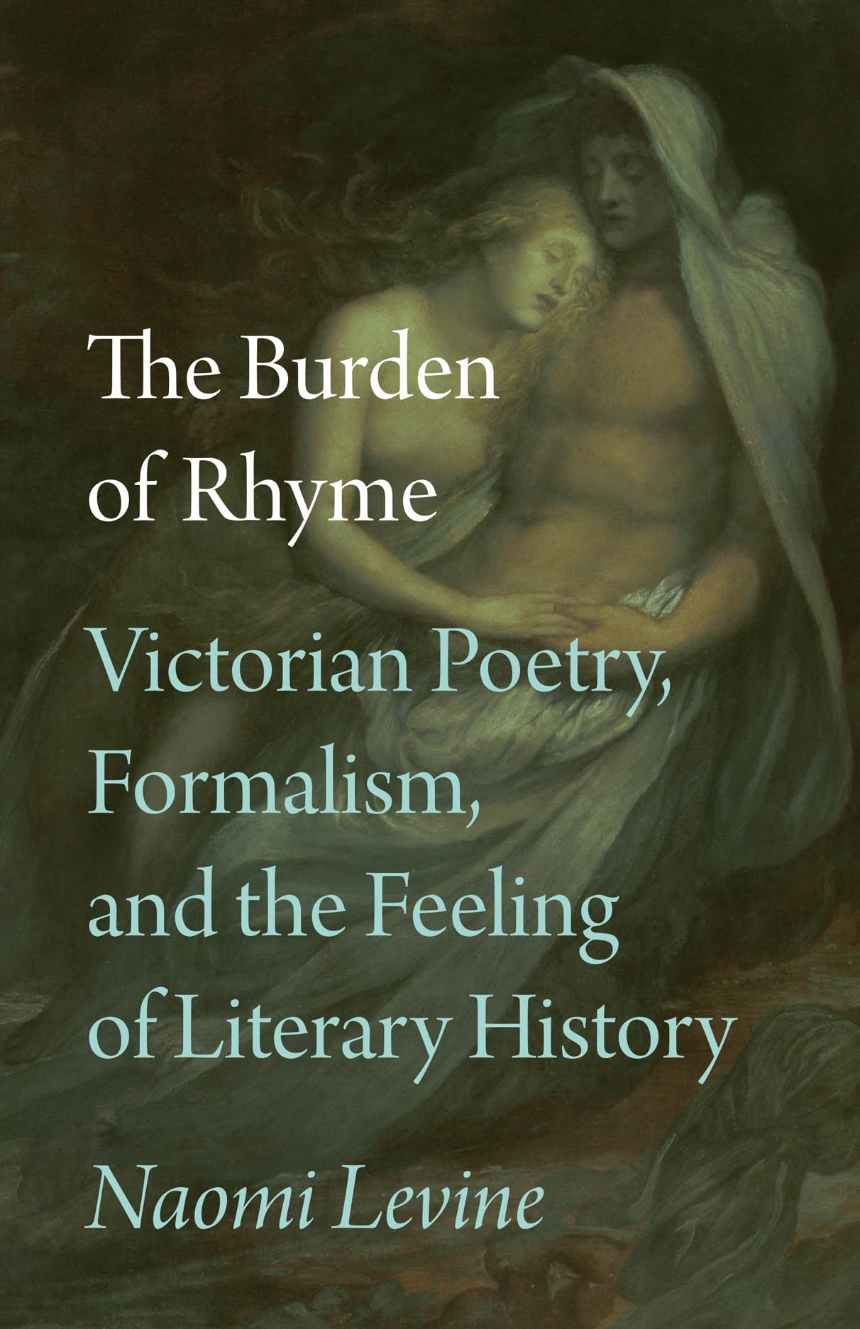The Burden of Rhyme
Victorian Poetry, Formalism, and the Feeling of Literary History
9780226834979
9780226834962
9780226834986
The Burden of Rhyme
Victorian Poetry, Formalism, and the Feeling of Literary History
A major new account of Victorian poetry and its place in the field of literary studies.
The Burden of Rhyme shows how the nineteenth-century search for the origin of rhyme shaped the theory and practice of poetry. For Victorians, rhyme was not (as it was for the New Critics, and as it still is for us) a mere technique or ahistorical form. Instead, it carried vivid historical fantasies derived from early studies of world literature. Naomi Levine argues that rhyme’s association with the advent of literary modernity and with a repertoire of medievalist, Italophilic, and orientalist myths about love, loss, and poetic longing made it a sensitive historiographic instrument. Victorian poets used rhyme to theorize both literary history and the most elusive effects of aesthetic form. This Victorian formalism, which insisted on the significance of origins, was a precursor to and a challenge for twentieth-century methods. In uncovering the rich relationship between Victorian poetic forms and a forgotten style of literary-historical thought, The Burden of Rhyme reveals the unacknowledged influence of Victorian poetics—and its repudiation—on the development of modern literary criticism.
The Burden of Rhyme shows how the nineteenth-century search for the origin of rhyme shaped the theory and practice of poetry. For Victorians, rhyme was not (as it was for the New Critics, and as it still is for us) a mere technique or ahistorical form. Instead, it carried vivid historical fantasies derived from early studies of world literature. Naomi Levine argues that rhyme’s association with the advent of literary modernity and with a repertoire of medievalist, Italophilic, and orientalist myths about love, loss, and poetic longing made it a sensitive historiographic instrument. Victorian poets used rhyme to theorize both literary history and the most elusive effects of aesthetic form. This Victorian formalism, which insisted on the significance of origins, was a precursor to and a challenge for twentieth-century methods. In uncovering the rich relationship between Victorian poetic forms and a forgotten style of literary-historical thought, The Burden of Rhyme reveals the unacknowledged influence of Victorian poetics—and its repudiation—on the development of modern literary criticism.
256 pages | 3 halftones | 5 1/2 x 8 1/2 | © 2024
Literature and Literary Criticism: British and Irish Literature, General Criticism and Critical Theory
Reviews
Table of Contents
Introduction
Part I: Genetic Formalism: A Theory and Its Histories
1: Old Historicism, New Criticism, and the Feeling in Form
2: Arthur Hallam and the Origins of Rhyme
Part II: Historiographic Forms
3: Alfred Tennyson’s Lyric Stanza
4: Elizabeth Barrett Browning’s Unblank Verse
5: William Morris’s Fleshly Rhymes
6: Coventry Patmore’s Passionate Pause
Conclusion: The Spirit of Romance
Acknowledgments
Notes
Bibliography
Index
Part I: Genetic Formalism: A Theory and Its Histories
1: Old Historicism, New Criticism, and the Feeling in Form
2: Arthur Hallam and the Origins of Rhyme
Part II: Historiographic Forms
3: Alfred Tennyson’s Lyric Stanza
4: Elizabeth Barrett Browning’s Unblank Verse
5: William Morris’s Fleshly Rhymes
6: Coventry Patmore’s Passionate Pause
Conclusion: The Spirit of Romance
Acknowledgments
Notes
Bibliography
Index
